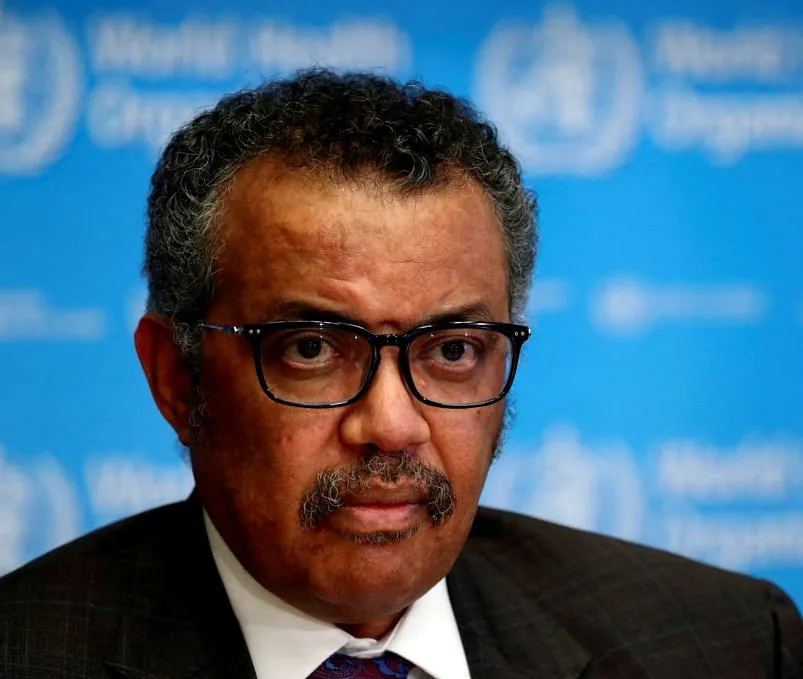World leaders must not politicise the coronavirus pandemic but unite to fight it, the head of the World Health Organization warned on Monday, reminding all that the pandemic is still accelerating and producing record daily increases in infections.
The comments by Tedros Adhanom Ghebreyesus, who has faced criticism from US President Donald Trump, comes as the number of reported infections soared in Brazil, Iraq, India and southern and western US states, straining local hospitals.
In New York City, once the epicentre of the US outbreak, Monday was a key day for lifting many coronavirus lockdown restrictions.
It took over three months for the world to see 1 million virus infections, but the last 1 million cases have come in just eight days, Tedros said during a videoconference for the Dubai-based World Government Summit.
Tedros never mentioned Trump’s name or the fact that he is determined to pull the United States out of the UN health agency but warned against “politicising” the pandemic.
“The greatest threat we face now is not the virus itself, it’s the lack of global solidarity and global leadership,” he said. “We cannot defeat this pandemic with a divided world.”
Trump has criticized the WHO for its early response to the outbreak and what he considers its excessive praise of China, where the outbreak began, as his administration’s response in the US has come under scrutiny. In response, Trump has threatened to end all US funding for the WHO.
Nearly 9 million people have been infected by the virus worldwide and more than 468,000 have died, according to figures compiled by Johns Hopkins University. Experts say the actual numbers are much higher, due to limited testing and asymptomatic cases. “The COVID-19 pandemic has demonstrated that, indeed, the world was not prepared,” Tedros said. “Globally, the pandemic is still accelerating.”
Companies around the world are racing to find a vaccine to counter COVID-19 and there is a fierce debate about how to make sure that vaccine is distributed fairly.
Speaking later in the conference, WHO’s special envoy on COVID-19, Dr David Nabarro, said he believed it would be “2 1/2 years until there will be vaccine for everybody in the world”.
“Even if there’s a candidate by the end of the year, the safety and efficacy tests will take some time,” the British physician said. “And then the effort has to be put into producing large amounts of vaccine so everyone in the world can get it and then organising the vaccination programmes.”
He added: “I would love it to be proved wrong.” India’s health care system has been slammed by the virus. The country’s caseload climbed by nearly 15,000 Monday to 425,282, with more than 13,000 deaths.






